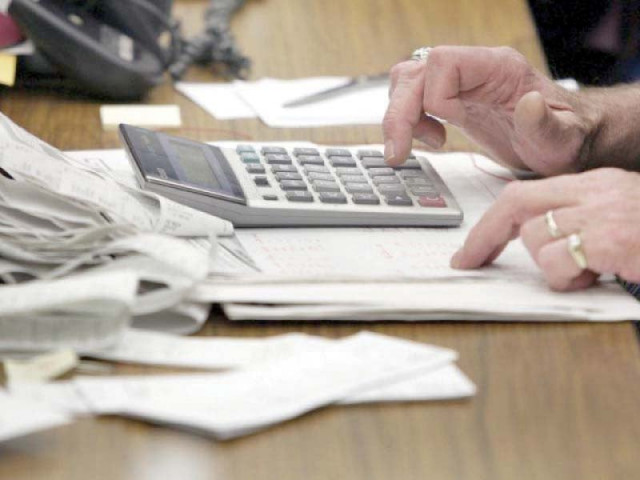ICAP for withdrawing tax breaks
Demands end to unchecked budget subsidies for exporters

The Institute of Chartered Accountants of Pakistan (ICAP) on Tuesday proposed to withdraw all income tax exemptions, including those meant for generals and judges, and also sought an end to the unchecked inefficiency-prone budget subsidies for the exporters.
Institute’s President Ashfaq Tola unveiled a set of recommendations and what he termed a prudent fiscal framework for fiscal year 2022-23. The proposals also seek to link the sale of properties with the Federal Board of Revenue (FBR) database aimed at ending huge tax evasion in the realty sector.
The government should seriously consider withdrawal of all unwarranted and discriminatory tax exemptions and concessions provided in the Second Schedule to the ITO as without it broadening of the tax base will remain a dream, according to the proposal.
The total cost of only the income tax exemptions in the last fiscal year was Rs448 billion, as the successive governments generously gave the exemptions to appease many influential segments of society.
The ICAP proposed that the Second Schedule income tax exemptions should be withdrawn “proactively rather than at the behest of IMF”.
Responding to a question about the huge subsidies got by the exporters, mainly the members of All Pakistan Textile Mills Association, Tola said that no subsidies should be given to promote inefficiency rather the subsidies should only be meant for enhancing competition and based on some studies.
The ICAP president argued that over the period of time there was no real increase in the volume of textile exports rather the increase was coming because of higher global prices.
Successive governments have been doling out electricity and gas subsidies to the exporters, lately by providing gas at $9 per mmbtu after purchasing it at $25 from the international market. Yet the exporters failed to increase exports.
The Pakistan Business Council (PBC) also tweeted on Tuesday that the export and import ratio lagged behind the region. Even with remittances, the current account is in deficit, according to the PBC.
It emphasised the need to focus on broadening the export basket, diversifying reach, incentivising faster-growing categories, improving market access, productivity and competitiveness.
The ICAP proposed that housing societies, developers and builders engaged in selling plots and building units should integrate their systems with the FBR on the same mechanism as the POS integration and share real-time transfer of files, plots and building units with the FBR.
Such information should be transferred to the Broadening of Tax Base department to analyse the information and cross-match the same with wealth statements and tax returns of buyers and sellers, it said.
The ICAP president insisted that there was huge room for broadening the tax base by geo-tagging 35 million shops aimed at getting the true revenues from the wholesale and retail sectors.
The institute also recommended that there should be categorisation of small retailers based on location and area. The FBR has already started working on tapping tier-one retailers.
Furthermore, it is proposed that a fixed income tax regime should be introduced for small retailers.
It is proposed that the FBR should begin this exercise with CDA in the first phase in order to take capital city retailers in the tax ambit and in phase two spread it to other major metropolitan cities.
Also, GPS mapping of such shops can also be done through this exercise simultaneously.
The institution also recommended that the salaried persons should be taxed only on the net income basis by allowing them to deduct the expenditures on various heads like house rents and car maintenance. Unlike the businesses that are allowed to pay taxes on their net income, the salaried persons are taxed on their gross incomes.
The ICAP recommended that the government should fix the tax target at Rs9.5 trillion – for FBR Rs7.5 trillion and non-tax Rs2 trillion. But still it has worked out the budget deficit at Rs5.3 trillion, or equal to 6.3% of next year’s projected size of the economy.
The ICAP took this year’s GDP size which put the budget deficit at 8% for the next fiscal year.
The country made a sound economic recovery from the Covid-19 induced contraction, however, “we are still facing greater challenges that are creating huge external sector pressures,” said the ICAP president.
The trade deficit and current account deficit had already exceeded their annual targets. There is steep currency devaluation, weaker domestic demand due to monetary tightening and fiscal consolidation and global economic uncertainty.
Economic Advisory Committee Chairman Zeeshan Ijaz stated that in the case of Pakistan, whenever the economy grew over 5%, the current account slippages resulted in a balance of payments crisis and whenever the international commodity prices (primarily oil prices) were around or more than $100 mark, the twin deficit (fiscal and current) problems emerged for the country and as a result, it affected the growth and increased income inequality.
Published in The Express Tribune, June 1st, 2022.
Like Business on Facebook, follow @TribuneBiz on Twitter to stay informed and join in the conversation.


















COMMENTS
Comments are moderated and generally will be posted if they are on-topic and not abusive.
For more information, please see our Comments FAQ